We would like to hear from you
Contact Us!
Our sales and technical support staff are available 8-5 EST, Mon-Fri
When trying to decide between the options for emergency power on the market today, gas generators are a viable option. The upfront cost of a gas generator is comparable to most battery backup systems, they can often be sourced from a larger variety of vendors, and larger models frequently offer higher power outputs and more capacity per dollar than a battery-powered unit.
However, the pros certainly do not come without their fair share of significant compromises you will need to seriously consider in your pursuit of reliable, affordable, and consistent backup power.
Gas-powered systems, while having the option to turn on automatically, will often not be able to provide instantaneous power—many take 10-15 minutes to become fully operational with a 5-minute delay being considered a “quick” response time. In any sort of medical or laboratory setting, this delay would be considered unacceptable. This is an especially real threat in office-based surgery centers, where a patient who is being operated on cannot be without critical support infrastructure for such a prolonged period.
Second, by the nature of combustion, gas and diesel powered generators produce exhaust fumes that render them unable to be placed in the interior of your facility. This may prove to be less-than-ideal for office-based facilities, increasing the logistical challenge of the installation and deployment process. Furthermore, facilities located in dense-urban locales should keep in mind that a gas generator could involve a costly and confusing permitting process—generally due to local noise ordinances or environmental and zoning regulations.
Reoccurring costs—not just the purchase price—must also be considered when purchasing a gas system. In addition to the previously mentioned need for exterior installation and wiring—which does add significant cost—the primary cost associated with gas power is the fuel itself, be it liquid propane, diesel, gasoline or natural gas. While both gas and electricity pricing fluctuate regularly, gas is not a stable product and will need replenishing.
In cases where you may go longer than normal between outages, your gas supply may need to be replaced to receive the backup power you need, and to avoid damaging your generator. Additionally, sourcing fuel during an outage caused by a significant weather event also may pose a challenge that could risk the safety of staff and those involved.
Finally, ongoing maintenance must be factored into cost of ownership as well. At their core, the mechanism by which gas generators operate is not dissimilar from a standard car. Repairs are not a matter of if—but when.
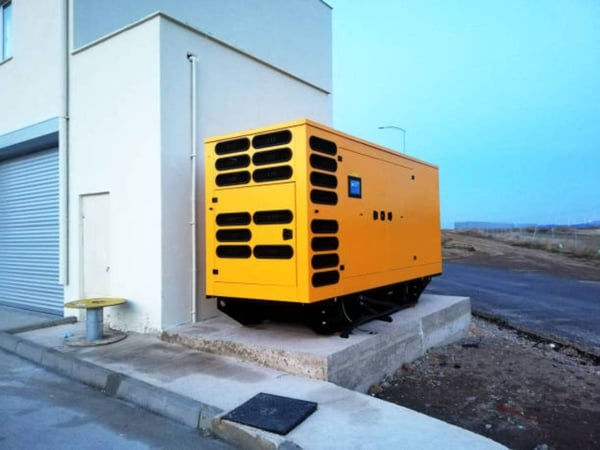
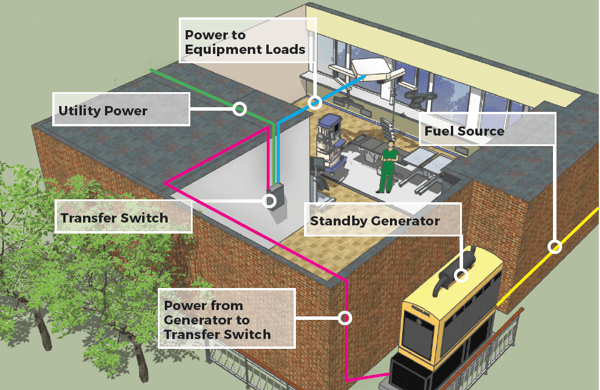

Battery Backup Power is increasingly becoming a popular option across the entire medical and laboratory fields to ensure operations can continue in an emergency outage situation. While presenting a larger upfront cost than alternative solutions, battery backup units provide both great long-term and short-term value for the end user.
Upon purchase, many battery backup units provide plug-and-play power in a variety of form factors—that is, they can be deployed immediately upon delivery, with no installation, building permits or set up required. However, like gas generators many also provide the option to be integrated directly into your building’s circuits—though unlike gas, batteries allow for they can be placed inside your facility due to their lack of exhaust fumes—thus providing an indoor generator solution in it's stead.
Over the long-term, battery backup units generally require very little maintenance, as their lack of moving mechanical parts eliminates most wear-and-tear, and because they derive their energy from the utility power of your facility, minimally add to your electricity bill in instances where they recharge. Additionally, because of their internal transfer switches they can provide instant power—where gas and diesel generators sometimes take as much as 15 minutes to engage.
Where battery units see their highest costs however, is in replacing the batteries. Due to the degradation of battery cells over time, to retain the same power output and runtime you’ll need to replace them per the manufacturers recommended interval. For example, MediProducts recommends you replace the sealed lead acid batteries in our systems every 4 years for optimal performance—generally at a cost of 20% of the original purchase price.
|
For everything you need to know about the batteries in rechargeable generators click here Or to read about the differences between sealed lead acid and lithium ion in rechargeable batteries, click here |
While able to be expanded to fit the needs of your facility, batteries by their nature aren’t small or light weight. So, for larger scale power needs (over 60 kWh) battery power may begin to provide diminishing returns due to the amount of space and cost required to house a system of this magnitude. However, all the same benefits that appear in smaller units (instant power delivery, no wear and tear, etc.) still exist.
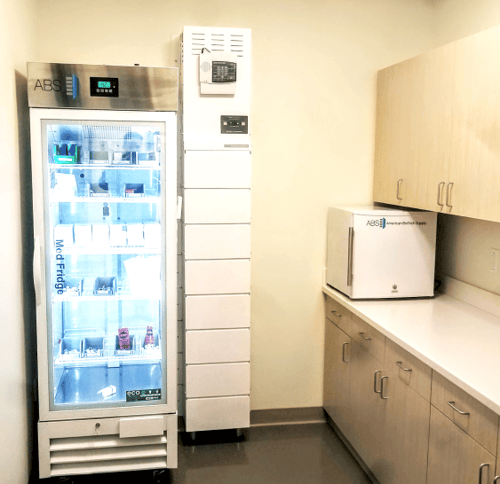
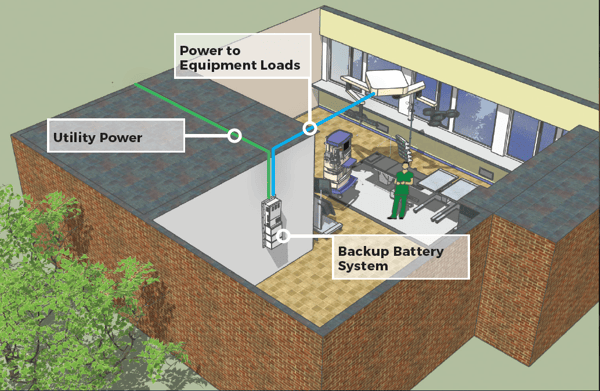
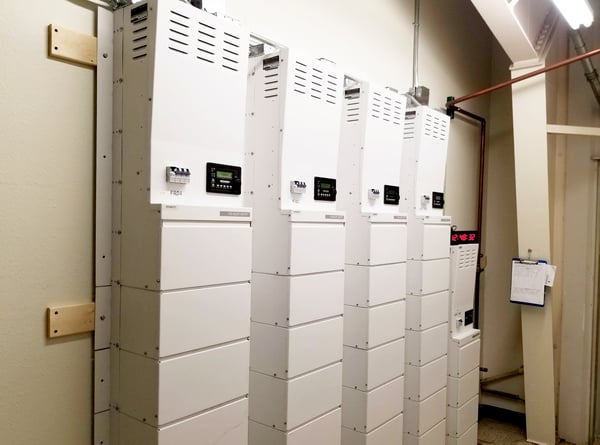
While both battery and gas-powered generators can provide tremendous value in helping to keep your facility up and running, depending on the needs and location of your operation one may be the better choice. If raw power, the ability to store and house everything outside, and low cost of enty are appealing/doable for your facility then gas power may be perfect. However, if you’re in an urban environment, or otherwise do not have the space for an outdoor generator, need power that can engage in milliseconds, is low maintenance and have the ability to afford a marginally higher cost of entry—then perhaps battery backup is absolutely perfect.
Our sales and technical support staff are available 8-5 EST, Mon-Fri